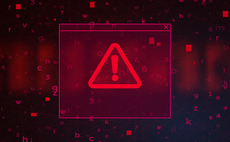Eugene Kaspersky told delegates at today's conference that their response is too little, and might already be too late
Amid the backslapping and predictable calls to action at the London Conference on Cyberspace today, Eugene Kaspersky was the lone critical voice, asking delegates why it has taken so long for them ...
To continue reading this article...
Join Computing
- Unlimited access to real-time news, analysis and opinion from the technology industry
- Receive important and breaking news in our daily newsletter
- Be the first to hear about our events and awards programmes
- Join live member only interviews with IT leaders at the ‘IT Lounge’; your chance to ask your burning tech questions and have them answered
- Access to the Computing Delta hub providing market intelligence and research
- Receive our members-only newsletter with exclusive opinion pieces from senior IT Leaders






















